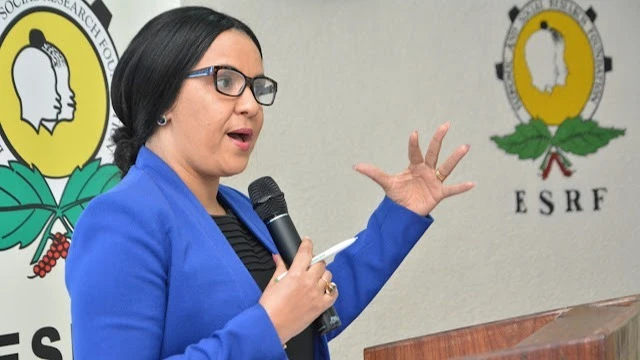State-owned firms’ CEOs urged to play productive leadership roles

Chief Executive Officers (CEOs) have been urged to play a vital role in realizing productive leadership within public-led institutions.
This call was made on Monday evening by Dr. Tausi Kida, the Permanent Secretary in the Ministry of Planning and Investment, on behalf of Chief Secretary Dr. Moses Kusiluka.
She inaugurated a three-day induction program for CEOs currently taking place in Kibaha district.
Themed ‘Enhancing Leadership and Strategic Management in Public and Statutory Corporations for Sustainable Development,’ the program aims to equip CEOs with intensive leadership skills.
Dr. Kida stated that the program, which includes all appointees from 2022 to the present, is designed to provide new executives with essential frameworks and concepts to optimize workforce performance and potential.
“A comprehensive induction program for newly appointed heads of public parastatals aims to enhance the effectiveness and productivity of public entities,” she said.
Dr. Kida emphasized that improving the efficiency of public entities would enable them to contribute more to government revenues.
Currently, official data shows that non-tax revenue collected by the Office of the Treasury Registrar from Public and Statutory Corporations (PSCs) and minority interest corporations amounts to only three percent.
She challenged the heads of public entities to step up their efforts to increase contributions to the Consolidated Fund, which would complement tax revenue in financing development projects and social services.
“President Dr. Samia Suluhu Hassan wishes to see positive changes in the entities you lead. We, as the government, need a return on investment,” Dr. Kida remarked.
Tanzania has 309 State-Owned Enterprises with an investment capital of 75.8trn/-.
The Treasury Registrar, Nehemiah Mchechu, indicated that the induction program would feature high-impact sessions led by esteemed experts from both the public and private sectors.
According to him, the mandatory program will provide new heads of public entities with skills in strategic resource management, strategic leadership, financial management, public procurement, and public investment oversight.
“The induction program will lay the essential foundations for new executives to align their leadership competencies with the vision of a thriving public sector,” Mchechu explained.
He asserted that the purpose of the CEOs Induction Program is to prepare newly appointed executives to better serve the citizens of Tanzania through exemplary leadership and to contribute to real value creation across the government.
These reforms are in line with the Hon. President’s 4R philosophy, specifically focusing on the 2R elements—rebuild and reform—to enhance the productivity of public institutions for the nation’s benefit.
The three-day induction program aims to equip 111 newly appointed heads of State-Owned Enterprises with the necessary knowledge and networks to foster productivity in public entities.
Kadari Singo, Chief Executive of the Uongozi Institute, noted that induction programs have not been prioritized for many years, leading to shortcomings among CEOs and civil servants due to a lack of leadership skills.
Leadership is demonstrated when a leader dedicates time to inspire colleagues. A leader must possess the ability to manage an institution beyond just adhering to rules and guidelines.
Personal leadership competence is also crucial for a leader to serve as a role model for those they lead. Leaders are appointed based on their inherent potential rather than their superior knowledge.
A leader should be capable of managing and developing the assets of their institution while effectively directing the optimal use of resources.
Throughout the three-day induction program, CEOs will receive training in various areas, including financial management, the role of CEOs in managing public resources, accountability, stakeholder engagement, strategic communication, talent management, innovation and technology, experience sharing, and panel discussions.
Top Headlines
© 2024 IPPMEDIA.COM. ALL RIGHTS RESERVED

























